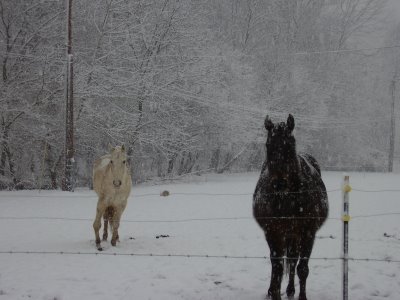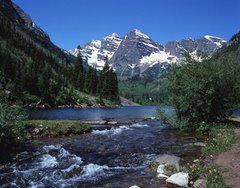reval much about his divine nature. In his infinite wisdom God chose to reveal himself through the means of progressive revelation. The result is that as we work our way through the scriptures there is a constant unfolding of the nature and person of God.
The second most common name for God in the Old Testament (used over 2,300 times) is Elohim. This word is plural in form and appears for the first time in Genesis 1:1. Thus from the very first verse of the Bible the uniqueness of God's three-in-one nature is revealed. God the Father and God the Holy Spirit are mentioned within the first two verses of Genesis chapter 1. However, it would be many years before God the Son would be fully revealed. Elohim means "strength" or "power" so it is not surprising that God introduced himself by this name in the creation account.
In scripture Elohim is normally a part of a compound name. Let's consider some of these names. In Deuteronomy 10:17 we read "For The Lord your God is the God of gods". Here the term is "Elohay Elohim" which means the "supreme God". In this passage God is claiming the strength, power and supremacy of himself in relation to other so called gods. Moses presented God in this manor when he was encouraging the people to love and obey the Lord.
In Deutoronomy 33:27 God reveals himself as the "eternal God", (Elohay Kedem) (who) is your refuge and (who has) "his everlasting arms under you." The Hebrew term literally means "the strong and powerful God from antiquity," the God who has been eternally pre-existent. Moses used this name for God while blessing Israel shortly before his death.
In Psalm 43:2 we read the cry of the psalmists heart when he states "for you are God, my only safe haven". The term used is "Elohay Mauzi" which describes a place or means of safety and protection under the watchful care of the strong and powerful God. One of the most heartfelt themes of the writers of the Psalms was their passionate crying onto God asking him to be their safe haven.
In the book of Nememiah we discover the struggle the returning exiles had in rebuilding the walls of Jerusalem. When the task is finally completed Ezra the scribe read the law of Moses to the people and led them through the process of confessing their sins. The Israelites were reminded that the Lord (Nehemiah 9:17) was a "God of Forgiveness" that he was "gracious and merciful" and "was slow to become angry, and rich in unfailing love." The Hebrew name is "Elohay Selichot" -- that is the "strong and powerful God who forgives and pardons".
There are many other names of God presented in scripture. It is a fascinating study to investigate the context in which God first reveals himself using a specific name. However, there is one other name we need to consider. It is the most common name he uses for himself -- YHVH which in our English Bible is normally translated LORD except on rare occassions when it is translated. "I AM WHO I AM"'. This name is used about 7,000 times in the scriptures. It appears for the first tivme in Genesis 2:4 in relation to the creation --- "When the LORD God made the earth and the heavens." From the begining God presents himself as the self-existent and eternal God who has always existed and will always continue to exist. Because of his eternal nature, his strength and power, everything in creation is ultimately subject to God the Father, God the Son and God the Holy Spirit.
When God was preparing Moses to lead the Children of Israel out of Egypt after 400 years of slavery Moses wanted to be able to tell the people the name of the God who had sent him with that directive. At that time God chose to reval himself to the people by his self-existant eternal name --- "Yahweh, the God of your ancestors" (Exodus 3:14-15).
All these names tell us something about the nature and person of God. All of these names have tremendous power and an awesome magnitude to them. Some of these names describe attributes we can hardly fathom. Thankfully, God saw fit to personalize himself through the person of God the Son, that is Jesus the Christ. As Jesus lived on earth he radiated "God's own glory" and expressed "the very character of God," (Hebrews 1:3), so that it could be said that anyone who has seen Jesus has seen the Father (John 14:9). Today Jesus does not live physically on the earth but anyone who makes the effort to investigate the scriptures, especially the Gospels, will see Christ come vividly alive in such away that there can be no doubt that he is in truth the eternal God.
Copyright. Bruce January 2013 Note: All quotes taken from the New Living Translation Second .
 At a tall tuft of flowers beside a brook,
At a tall tuft of flowers beside a brook,






